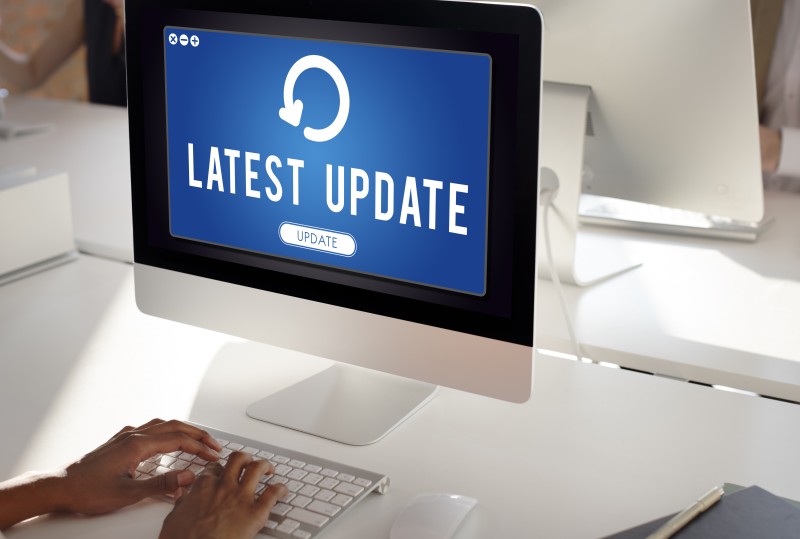How Healthy is your WordPress site?

This page may contain links to Amazon.com or other sites from which I may receive commission on purchases you make after clicking on such links. Read my full Disclosure Policy
When I tell people that I work exclusively with WordPress, they’re sometimes surprised or even concerned. “Isn’t it very insecure?” they ask.
“Not really,” I explain.
Sure, nearly half of all websites are powered by WordPress, which makes it an attractive target for hackers. But just like anything valuable, good maintenance practices will provide protection and keep your site up running. To help keep your site is as healthy as possible, here’s a rundown of the items I check when someone signs up for my Website Care Plan.
WordPress Technical Audit Checklist
1 – Backups
Do you have a backup system in place?
Ensuring regular backups is like having insurance for your site. You may never need them, but if disaster strikes, they’re a lifesaver.
Is it running on schedule?
If your site went down today and your latest backup is several months old, how much work would you lose?
Are the backups completing or does the system time out?
A failed backup is no backup at all. Regular checks are essential.
2 – Plugins
Are you actually using all your plugins?
Excess plugins can slow your site and create security risks.
Do you have more than one plugin serving the same function?
Redundancy can lead to conflicts and slow performance.
Do you have any inactive plugins?
Inactive plugins can be a security risk. Clean them up!
Do you have licenses in place for any premium plugins? Are the licenses active?
Ensure your premium plugins are up-to-date and supported.
When is the last time the plugin was updated? Are you running the latest version?
All plugins need to be kept updated to keep the website secure.
Is the plugin still available and is the developer still supporting it?
If a plugin has been discontinued or abandoned, it may stop working or pose a security risk, and you won’t be able to do anything but replace it with a different one.
Has it been tested with recent versions of WordPress?
Compatibility is crucial for uninterrupted functionality.
(For more details about conducting a plugin audit, read Do your plugins make your website shine?
3 – Themes
If you have a premium theme, is the license in place and active?
An active license ensures you receive updates and support.
When is the last time the theme was updated?
Regular updates are crucial for security and performance.
Is the developer still supporting the theme?
Even purchased themes are sometimes abandoned by the developer. This can lead to incompatibility with future versions of WordPress or plugins, and means you have no one to turn to when a problem arises.
(If you need to replace your theme, be sure to read How to find the best WordPress theme for your business first!)
Do you have unused themes?
Unused themes can pose a security risk. Clean them out.
4 – Performance
Do your pages load in under 3 seconds?
Slow loading times can frustrate visitors and harm your SEO. This problem is often caused by web hosting limitations and/or uploading large photos.
5 – Security
Are you using a reliable security plugin?
A good security plugin is your first line of defense.
Does your site currently have any known vulnerabilities?
Regular scans can help identify and fix security issues before the unthinkable happens.
6 – Forms
Are all your forms in use?
Remove unused forms to streamline your dashboard.
Are the forms working correctly?
Test regularly to make sure people can submit the form and that you receive any email notifications.
7 – Responsiveness
Is your site easy to use on a mobile device?
With more and more people using phones and tablets to access the Internet, having a mobile-friendly site is essential.
8 – Users
Do you have multiple admin users? Do they all require this level of access?
Limit admin access to those who truly need it.
Are there users you don’t recognize?
Remove anyone who no longer needs access or who shouldn’t have been added in the first place.
9 – Navigation
Are all menus functional and linking correctly?
Ensure a smooth user experience by making sure all links go where they’re supposed to.
10 – Site Health
Does the Site Health screen in your dashboard reveal any issues not listed above?
These often have to do with your hosting service and may or may not be critical.
Yes, it’s a lot, but your website is a big investment and you owe it to your business to keep it properly maintained, just like your house or your car. If you’re not sure how to check these things or how to resolve any issues you detect, don’t just ignore them and hope for the best!
Although Benjamin Franklin didn’t know anything about WordPress, he nailed it when he said, “An ounce of prevention is worth a pound of cure.”
If you’re uncomfortable with the inner workings of your site or are too busy to stay on top of everything, check out my Website Care Plans.
Photo by scanrail / Depositphotos

Janet Barclay
I eliminate stress for my clients by hosting, monitoring, and maintaining their WordPress sites so they don’t have to worry about security, downtime or performance issues. When I’m away from my desk, I enjoy reading, photography, cooking, watching movies, drinking tea, and spending time with my family.




The Wordfence 2022 State of WordPress Security Report, which states that 90% of vulnerabilities on the WordPress platform come from outdated plugins, and 6% from outdated themes. Totally avoidable!
It’s too technical for me. That’s why I have you do it for me.😄
Some of the steps are easy to check – it’s when something’s not working that you can run into trouble! You are wise to opt for preventative maintenance and I’m thankful to have you as a client. 🙂
These are all such important steps to know about. I’m pretty good about updating my plugins and themes, but I haven’t really thought of them as security risks. Now I see that this is a major concern, which motivates me all the more to be prompt in updating.
In my site health I see a recommendation to remove inactive themes, so I can do that! Great to get me paying attention to this.
I’m glad this was helpful! I’m always concerned that these topics might be too boring to make people care about this stuff!
Thank you for creating such an easy to follow rubric for figuring out how to keep our sites safe.
I’d love you to do a post on the different methods and iterations of site backup these days. For example, backing up your database vs. backing up your whole site. If the only thing you ever change are blog posts, is a combination of frequently (daily or weekly or whatever) database backups with less frequent whole-site backups workable?
And thanks for the site health reminder! (Stupid Google Analytics!)
Great questions, Julie! I will consider that for a future post.